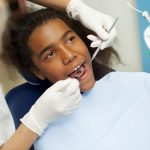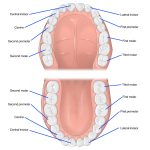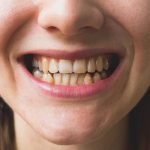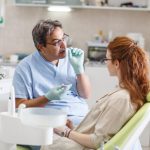Dog Dental Care: When is the Right Time for Your Pup’s First Teeth Cleaning?
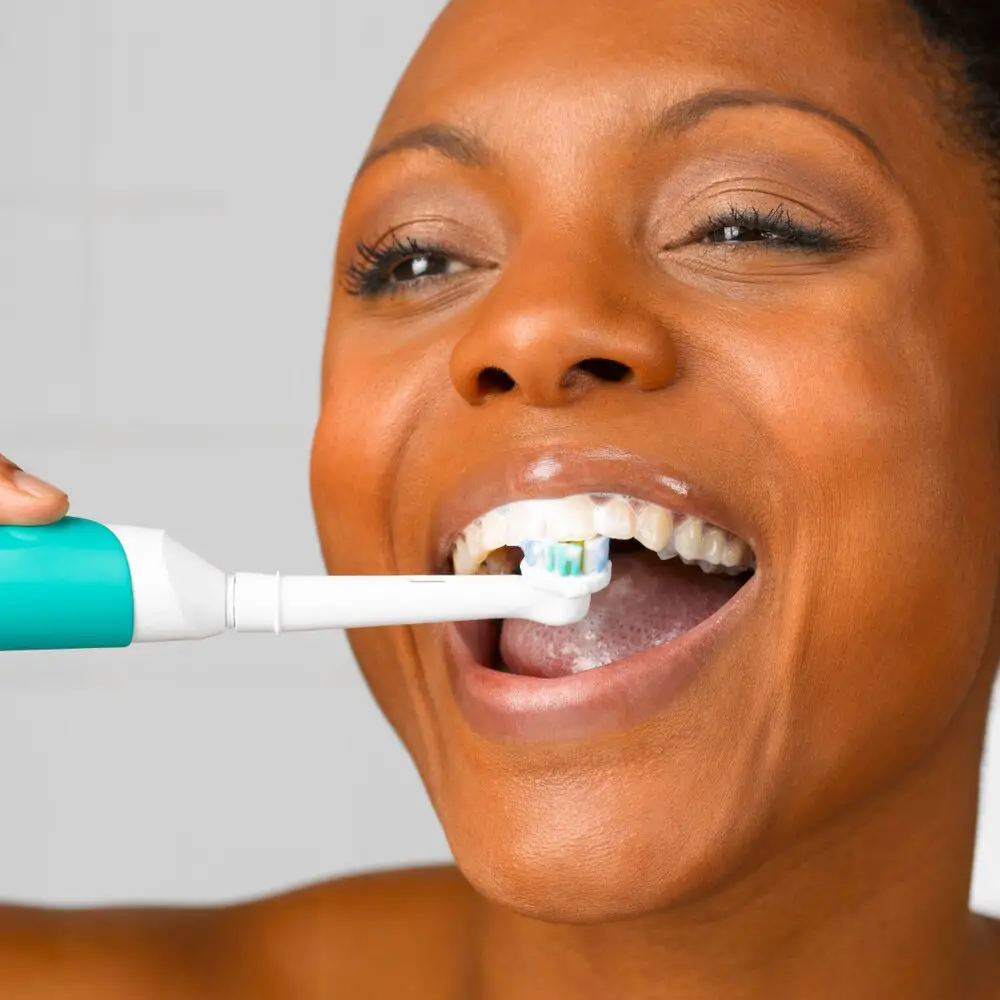
Dogs are known for their playful nature, loyalty, and unconditional love towards their owners. They are often considered as a part of the family and treated with utmost care and attention. However, when it comes to their dental hygiene, it is often overlooked. It is essential to understand that oral hygiene plays a crucial role in a dog’s overall health and well-being. Just like humans, dogs can suffer from dental problems such as tartar buildup, gingivitis, and periodontitis. Therefore, it is crucial to take care of their dental health by providing them with regular dental check-ups, proper brushing, and teeth cleaning. Dental care for dogs is often neglected, which can lead to various health problems such as bad breath, tooth decay, and infections. It is essential to start taking care of your pup’s dental health from an early age to prevent such problems and maintain their overall health. The right time for your pup’s first teeth cleaning depends on various factors such as their breed, age, and dental health. However, in general, it is recommended to schedule your pup’s first teeth cleaning when they are around six months old. This will help in detecting any dental problems early and prevent them from getting worse. In this article, we will discuss the importance of dental care for dogs and when the right time is for your pup’s first teeth cleaning.
Dental care is not only essential for humans but also for dogs. Proper dental hygiene is crucial for your pup’s overall health and well-being. Poor oral hygiene can lead to tooth decay, gum disease, and bacterial infections that can spread to other parts of the body, causing serious health problems. Regular dental cleanings, brushing your dog’s teeth, and providing them with dental chews and toys can help prevent these issues. Neglecting your dog’s dental health can lead to painful and costly dental procedures that could have been easily avoided with proper care. By taking care of your dog’s teeth, you are ensuring a happier and healthier life for your furry friend.
Regular teeth cleaning is essential for maintaining good oral hygiene and overall health in dogs. It helps to prevent the buildup of plaque and tartar, which can lead to tooth decay, gum disease, and bad breath. Professional teeth cleaning by a veterinarian can also detect any underlying dental issues, such as broken or infected teeth, that may be causing discomfort or pain to your pup. By keeping your dog’s teeth clean, you can improve their quality of life, reduce the risk of costly dental procedures down the line, and increase their lifespan. Plus, a healthy set of teeth can make your furry friend’s smile even more adorable!
Understanding Your Dog’s Teeth
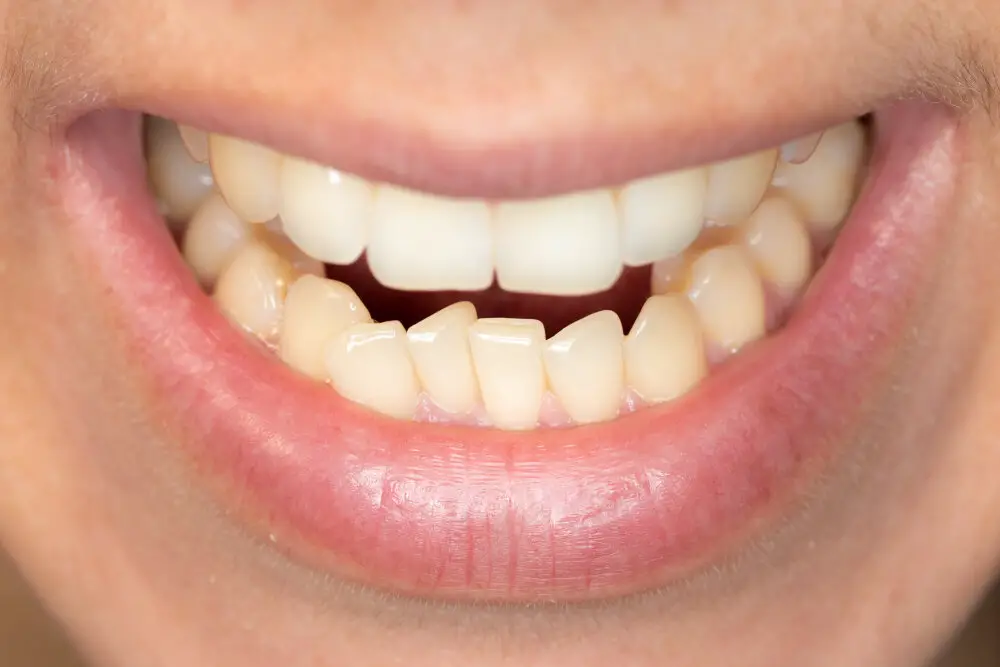
Understanding your dog’s teeth is an essential part of maintaining their overall health. Just like humans, dogs’ teeth require regular care and attention to prevent dental problems and ensure a happy and healthy life. Dogs have a total of 42 teeth, including incisors, canines, premolars, and molars. Each type of tooth serves a different purpose, and understanding their function can help you take better care of your dog’s dental health. Incisors are the small front teeth that dogs use for biting and grooming. Canines are the larger, pointed teeth that dogs use for tearing and ripping apart food. Premolars are located behind the canines and are used for grinding and crushing. Finally, molars are located in the back of the mouth and are used for grinding and chewing hard foods. By understanding your dog’s teeth, you can identify any potential dental problems and take the appropriate steps to prevent them. Regular brushing, dental checkups, and a healthy diet can all help maintain your dog’s dental health.
A dog’s teeth are an essential part of their anatomy, and they serve various functions, including biting, chewing, and tearing. There are different types of teeth in dogs, each with a specific purpose. Incisors are the small, front teeth used for nibbling and grooming; canines are the long, pointed teeth used for tearing and holding prey; premolars are the flat teeth used for grinding and crushing food, and molars are the largest teeth found at the back of the mouth, also used for grinding and crushing. Understanding the different types of teeth and their functions is crucial in maintaining good dental health for your furry friend. Regular cleaning and check-ups with a veterinarian can help prevent dental problems, such as gum disease and tooth decay.
The normal development of teeth in puppies is a fascinating process. It typically begins when they are around two weeks old, and their first set of deciduous teeth start to emerge. These baby teeth are small and sharp, and they play an important role in the puppy’s nutrition and socialization. As the puppy grows, their adult teeth will start to come in, and the baby teeth will fall out. This process can take several months, and it’s important for owners to monitor their puppy’s dental health throughout this time. Regular brushing and dental check-ups can help prevent dental problems down the line and ensure that your pup has a healthy, happy smile for years to come.
Just like humans, dogs can suffer from a variety of dental problems that can lead to discomfort or even serious health issues if left untreated. One of the most common issues is periodontal disease, which is caused by a buildup of bacteria and plaque on the teeth and gums. Symptoms of this condition include bad breath, swollen or bleeding gums, and loose or missing teeth. Other dental problems in dogs can include fractured or broken teeth, which can be caused by chewing on hard objects or trauma, and abscesses or infections in the teeth or gums. It’s important for dog owners to be aware of these issues and to take steps to prevent them, such as regular brushing and dental cleanings by a veterinarian.
Signs Your Dog Needs Dental Care
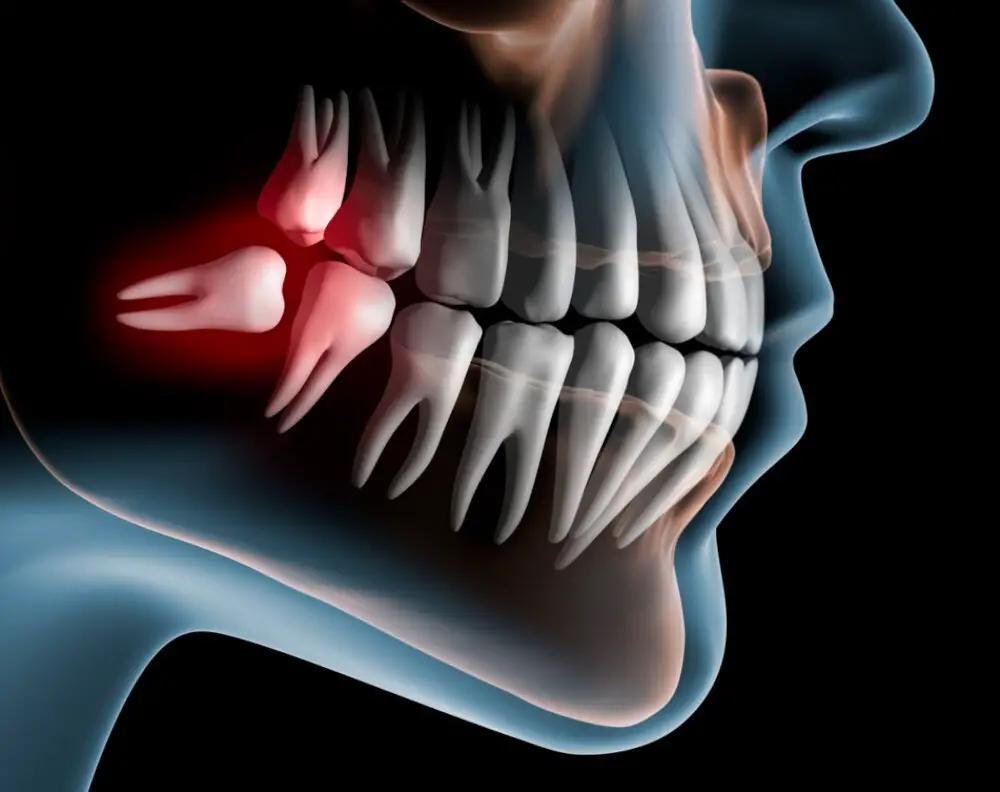
Dental care is an essential aspect of a dog’s overall health and well-being. Many pet owners neglect their dog’s dental hygiene, which can cause various dental problems such as bad breath, gum disease, and tooth decay. It is crucial to pay attention to any signs that your dog needs dental care to prevent serious health issues. One of the most obvious signs is bad breath, which is a sign of dental disease caused by bacteria buildup in the mouth. If your dog’s breath smells foul, it is a clear indication that they need dental care. Another sign that your dog needs dental care is if they have difficulty eating or chewing. Tooth decay or gum disease can cause pain and discomfort when eating, which can lead to a loss of appetite. If your dog is avoiding their food or taking longer to eat, it may be a sign that they need dental care. Other symptoms to look out for include bleeding gums, loose or missing teeth, and excessive drooling. If you notice any of these signs, it is essential to take your dog to the vet for a dental check-up and cleaning. Regular dental care can help prevent serious health issues and keep your dog healthy and happy.
Bad breath, also known as halitosis, is a common issue among dogs that can be caused by a variety of factors. Poor dental hygiene, gum disease, and dietary habits can all contribute to unpleasant odors emanating from your pup’s mouth. If left untreated, bad breath can lead to more serious health problems, such as tooth decay and infections. Regular teeth cleaning and dental check-ups can help prevent bad breath and ensure that your dog maintains good oral health. Additionally, providing your dog with dental chews or toys can help promote healthy teeth and fresh breath.
Discolored teeth in dogs can be indicative of poor oral health, and can also detract from their appearance. Causes of discolored teeth can include poor diet, lack of dental hygiene, or even certain medications. While some discoloration may be normal with age, it’s important to have your pup’s teeth examined by a veterinarian to rule out any underlying health issues. Regular dental cleanings, both at home and from a professional, can help prevent and address discoloration, ensuring your furry friend has a healthy and shining smile.
Loose or missing teeth are common problems among dogs, especially as they age. This can be caused by a variety of reasons including periodontal disease, trauma or injury, and genetics. It is important to address these issues promptly as they can lead to more serious health problems if left untreated. Loose or missing teeth can affect a dog’s ability to eat, causing them to lose weight and become malnourished. Additionally, it can lead to infections and inflammation in the mouth which can spread to other parts of the body. Regular dental check-ups and cleanings, as well as proper at-home dental care, can help prevent loose or missing teeth and keep your furry friend healthy and happy.
One of the common signs that indicate a dog needs dental care is difficulty eating or chewing. This can be caused by various dental problems such as gum disease, tooth decay, or broken teeth. When a dog experiences pain while chewing or eating, it may result in a decrease in appetite, weight loss, and other health issues. Therefore, it’s essential to pay attention to your dog’s eating habits and take action if you notice any changes. Regular dental check-ups and cleanings can prevent dental problems and ensure your pup’s teeth and gums are healthy.
When to Schedule Your Dog’s First Teeth Cleaning
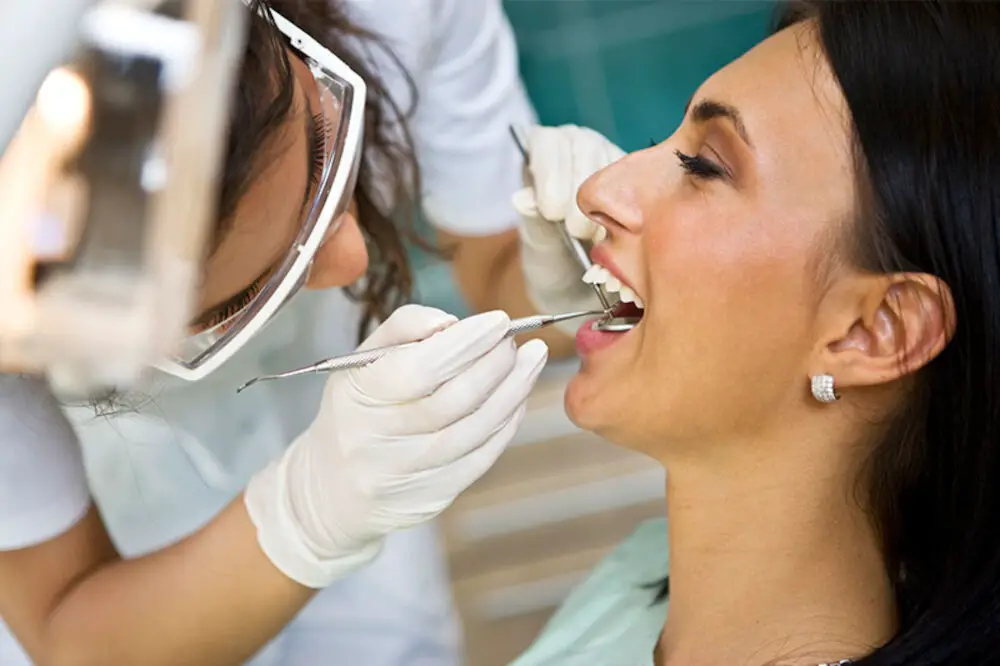
As a responsible dog owner, it’s crucial to prioritize your four-legged friend’s dental health. Dogs, like humans, are prone to developing dental problems such as gum disease, tooth decay, and bad breath. It’s essential to schedule regular teeth cleaning appointments with your veterinarian to prevent these issues from occurring. When it comes to your pup’s first teeth cleaning, it’s recommended to schedule it around the age of six months. By this time, your dog will have all of their adult teeth, and it’s the perfect time for a professional cleaning. However, it’s important to note that some dogs may require teeth cleaning earlier or later than six months. Factors such as breed, genetics, and diet can all play a role in your dog’s dental health. If you notice any signs of dental problems such as bad breath, yellowing teeth, or difficulty eating, it’s crucial to schedule a dental cleaning appointment with your veterinarian right away. Additionally, if your dog is considered a high-risk breed for dental problems, such as pugs or bulldogs, it’s recommended to schedule teeth cleaning appointments more frequently. Remember, prevention is key when it comes to your pup’s dental health, so don’t hesitate to schedule a teeth cleaning appointment if you have any concerns.
When it comes to dog dental care, many pet owners tend to overlook this important aspect of their furry friend’s overall health. However, just like humans, dogs need regular dental checkups and cleanings to prevent dental diseases such as gingivitis, periodontitis, and tooth decay. The right time to start dental care for your pup is during their puppyhood, as early as 8 weeks old. Starting dental care early can help your pup get used to the process and make it easier for them in the long run. It’s important to introduce your pup to dental care gradually and make it a positive experience for them. By starting dental care early, you can keep your pup’s teeth and gums healthy and prevent dental problems later in life.
Several factors can affect dental health in dogs. Diet plays a significant role in promoting healthy teeth and gums. Feeding high-quality food and avoiding sugary treats can prevent plaque buildup and reduce the risk of gum disease. Additionally, regular dental care, including brushing and professional cleanings, can help maintain oral hygiene. Genetics can also influence dental health, as certain breeds may be more prone to dental issues such as overcrowding or misaligned teeth. Lifestyle factors such as smoking exposure and stress can also contribute to poor dental health. By identifying and addressing these factors, pet owners can help ensure their dog’s dental health and overall well-being.
Regular dental checkups are essential for maintaining your dog’s oral hygiene and preventing dental problems. Though it may seem like a simple matter, your dog’s dental health can impact their overall wellbeing. By scheduling routine dental exams with your veterinarian, you can detect any potential issues, such as gum disease, tooth decay, or tartar buildup, before they become more serious and costly to treat. Additionally, regular teeth cleanings can prevent bad breath and keep your pup’s pearly whites shining bright. Dental care is an often-overlooked aspect of pet health, but with proper attention and care, you can ensure your furry friend’s smile stays healthy for years to come.
How to Care for Your Dog’s Teeth at Home
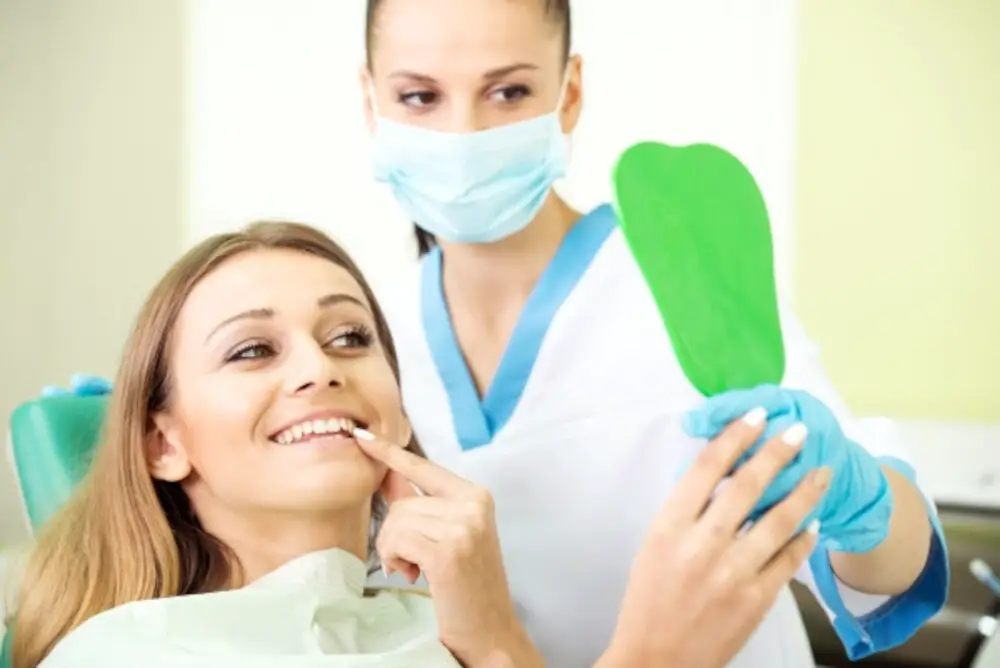
Proper dental care is essential for your dog’s overall health and well-being. Neglecting your dog’s teeth can lead to serious health issues such as gum disease, tooth loss, and even heart disease. Fortunately, there are several easy steps you can take at home to help keep your dog’s teeth clean and healthy. Firstly, regular brushing is crucial for maintaining good dental hygiene in dogs. You can use a toothbrush and toothpaste specially designed for dogs or simply a damp cloth to clean your dog’s teeth. Start slowly by introducing your dog to the toothbrush and toothpaste, and gradually increase the duration and frequency of brushing. Additionally, providing your dog with chew toys and dental treats can also help remove plaque and tartar buildup and improve their dental health. It is important to note that while home dental care is essential, it is not a substitute for professional dental cleanings, which should be done by a veterinarian.
Brushing your dog’s teeth regularly is an essential part of maintaining their overall health and well-being. When it comes to brushing techniques, there are a few key things to keep in mind. First and foremost, make sure you’re using a toothbrush and toothpaste specifically designed for dogs, as human toothpaste can be harmful to them. Next, be gentle but thorough, using a circular motion to clean all surfaces of your dog’s teeth and gums. It’s also important to be patient and consistent, gradually introducing your pup to the brushing process and making it a regular part of their routine. With the right techniques and a little bit of practice, you can help ensure your furry friend has a happy, healthy smile for years to come.
Dental treats and toys are a great way to maintain your dog’s oral hygiene and keep their teeth clean and healthy. There are a variety of dental treats and toys available that can help remove plaque and tartar buildup, freshen breath, and promote healthy chewing habits. Some popular options include dental chews, rawhide bones, and rope toys. It’s important to choose treats and toys that are appropriate for your dog’s size and chewing habits to ensure they are safe and effective. Regular use of dental treats and toys, in addition to regular brushing and professional cleanings, can help prevent dental issues and keep your pup’s smile looking and feeling great.
Diet and nutrition play a crucial role in maintaining good dental health for your furry friend. A balanced and healthy diet, including a variety of essential nutrients, can help prevent tartar buildup and promote strong teeth and healthy gums. Feeding your dog crunchy foods, such as carrots or apples, can also help clean their teeth naturally by scraping off plaque. However, it is important to avoid feeding your pup sugary or sticky snacks that can lead to tooth decay and other dental problems. In addition to a healthy diet, providing your dog with fresh water at all times can also help promote good oral hygiene by rinsing away food particles and bacteria. By prioritizing your dog’s nutritional needs and dental health, you can help ensure a happy and healthy life for your furry companion.
Dental care is an essential aspect of pet health that should not be overlooked. Just like humans, dogs require regular dental cleaning to prevent tooth decay, gum disease and other dental problems. Dental issues in dogs can cause pain, discomfort, and even lead to serious health problems if left untreated. In addition to routine dental cleaning, it is important to provide your dog with healthy teeth cleaning treats and toys to promote healthy teeth and gums. By prioritizing your dog’s dental care, you can ensure that they live a happy and healthy life with a bright smile.
Regular dental care is essential for your dog’s overall health, and scheduling their first teeth cleaning is the perfect way to start. Not only can it prevent serious dental problems like gum disease and tooth decay, but it can also improve your dog’s breath and make their teeth shine. Many dog owners may feel intimidated by the idea of a teeth cleaning, but there’s no need to worry. Professional veterinarians are trained to provide gentle and efficient care for your furry friend. By scheduling your dog’s first teeth cleaning, you’re taking a proactive step towards ensuring their long-term health and happiness.
Maintaining regular dental checkups and at-home care for your dog is crucial for their overall health and well-being. Just like humans, dogs can develop dental problems such as plaque buildup, gingivitis, and tooth decay. These issues can lead to painful infections, loss of teeth, and even systemic diseases. To prevent these problems, it is essential to schedule regular dental checkups with your veterinarian and establish a daily dental care routine at home. This routine should include brushing your dog’s teeth with a dog-specific toothpaste, providing dental chews or toys, and feeding a healthy diet. By prioritizing your dog’s dental health, you can help them maintain a happy and healthy life.
Conclusion
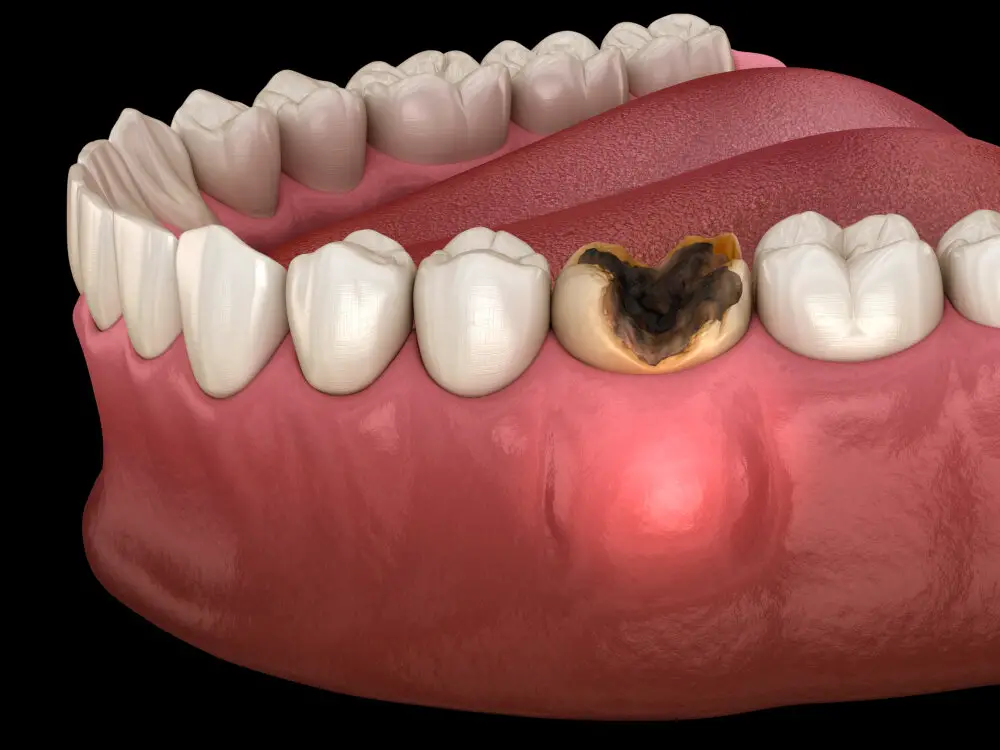
In conclusion, proper dental care is essential for maintaining your pup’s overall health and well-being. Early dental care intervention must be practiced to prevent periodontal disease, tooth decay, and other dental complications. It’s crucial to take your pup for a dental check-up as soon as possible and schedule their first teeth cleaning when recommended by the veterinarian. Regular teeth cleaning and other dental care practices can help your pup lead a healthy, happy life with a bright and healthy smile. So, it’s never too early to start taking care of your pup’s dental health!


